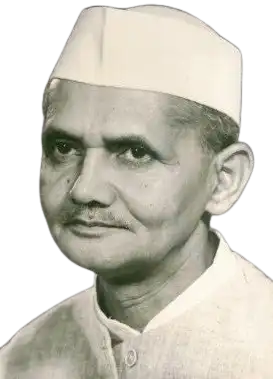1. Early Life and Political Inception
Shastri's early life was marked by adversity, losing his father at a young age and overcoming financial constraints to pursue his education. His deep-seated values of truth and non-violence were influenced by Mahatma Gandhi, leading him to join the Indian independence movement in the 1920s. Shastri's involvement in the freedom struggle, notably during the Non-Cooperation Movement and the Salt Satyagraha, laid the foundation for his political career and his principles of peaceful resistance and national unity.
2. Ascension to Prime Ministership
After India's independence, Shastri's political journey saw him holding various key positions, including Minister of Railways, and Minister for Home Affairs. Following the death of Jawaharlal Nehru in 1964, Shastri assumed the role of Prime Minister, navigating India through critical challenges with his diplomatic acumen and visionary leadership.
3. Key Achievements and Policies
Shastri's tenure as Prime Minister is perhaps best remembered for his leadership during the 1965 India-Pakistan war. His rallying cry, "Jai Jawan, Jai Kisan," encapsulated his strategy to boost the morale of both soldiers and farmers, emphasizing the importance of agriculture and military strength in ensuring national security and self-reliance.
Under Shastri's leadership, India took significant strides in agriculture, notably through the promotion of the White Revolution, aimed at increasing milk production, and the Green Revolution, which led to increased agricultural productivity and self-sufficiency in food grains. These initiatives played a crucial role in transforming India's agrarian economy.
Despite his firm stance during the war, Shastri was a staunch advocate for peace and diplomacy. His efforts to ease tensions with Pakistan, culminating in the Tashkent Agreement, underscored his belief in peaceful resolution of conflicts and the importance of cooperation for regional stability.
4. Personal Life and Values
Shastri's personal life was a reflection of his public persona—marked by simplicity, integrity, and an unwavering dedication to public service. His decision to adopt the title "Shastri" from the Kashi Vidya Peeth as his surname highlighted his respect for academia and culture over material wealth.
5. Legacy and Impact
Lal Bahadur Shastri's death on January 11, 1966, in Tashkent, Uzbekistan, under mysterious circumstances, left a void in Indian politics. However, his contributions to India's development and the principles he stood for continue to resonate. Shastri's legacy is not just in the policies he implemented but in the ethical and moral standards he set for public life and governance.
6. FAQs
Shastri's major contributions include leading India during the 1965 war with Pakistan, promoting the White and Green Revolutions, and embodying the values of simplicity and integrity in public service.
Shastri's promotion of the Green Revolution involved supporting agricultural research and development, which led to the introduction of high-yielding varieties of seeds and improved irrigation techniques, significantly increasing food grain production in India.
"Jai Jawan, Jai Kisan" was Shastri's slogan that highlighted the importance of soldiers and farmers in the nation's security and self-sufficiency. It underscored his vision of a balanced development model that catered to both defense and agriculture.
7. Online Resources
- National Archives of India: Offers access to documents and speeches from Shastri's tenure.
- Lal Bahadur Shastri National Memorial Trust: Provides insights into his life, work, and the initiatives he championed.
- Scholarly Articles and Books: Extensive literature on Shastri's leadership and policies is available for in-depth study, accessible through academic libraries and online platforms.
8. Conclusion
Lal Bahadur Shastri's life and leadership exemplify the virtues of simplicity, integrity, and dedication to the nation's welfare. His policies and initiatives laid the groundwork for India's agricultural and military strength, while his ethical governance set a benchmark for future leaders. As we remember Shastri, his legacy reminds us of the profound impact of visionary leadership and the timeless values of peace, unity, and self-reliance.

